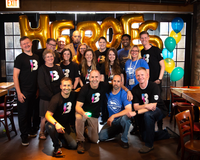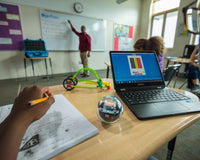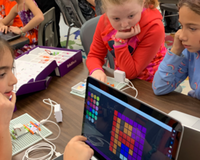We live in a world powered by technology and information. The abundance of information floating around can make it difficult to discern between true and false. This is where critical thinking for kids comes into the picture. You can start planting the seeds of critical thinking at an early age. The more time a kid spends practicing, the more their critical thinking skills can improve throughout childhood and into adolescence and adulthood. Critical thinking is one of the top skills employers want in a prospective employee.
A survey by Pearson indicates that about 81% of companies give top billing to critical thinking ability when scouting for new hires. These findings are backed up by a separate survey conducted by Springboard for Business where corporate leaders listed critical thinking as the top soft skill they sought in their workforce.
In keeping with this, the education sector is now tweaking curricula to emphasize skills such as critical thinking and problem solving. This provides students an opportunity to develop their critical thinking skills as they grow and mature, allowing them to solve problems by keeping a clear mind to have rational thoughts that help them analyze a situation and make a sound decision. Still, there is a long way to go as surveys indicate that few schools in America focus on teaching these skills to students.
What does critical thinking mean?
The ability to understand, assess, and analyze available information and facts to arrive at a decision is called critical thinking. We often use critical thinking in our daily lives without even being aware we are doing so. Determining what to eat for breakfast or which outfit to wear for a particular occasion requires critical thinking skills, albeit at a much simpler, non-academic level.
It is different from creative thinking which is the ability to generate new and original ideas. An individual with critical thinking skills can think clearly, rationally and logically in different situations. They have deep reasoning skills, cognitive flexibility, and an open mind. High-level critical thinkers can make robust arguments to get their point across.
Why is critical thinking necessary in kids?
Kids adept at critical thinking are more likely to comprehend complex ideas and concepts, tackle issues efficiently, and make intelligent choices. Developing critical thinking skills helps kids in the long run by teaching them ‘how to think’ rather than ‘what to think’. As adults, they can use these skills to make informed decisions, tackle social and emotional issues, and navigate their way through life to achieve their desired goals.
How can you teach critical thinking skills?
Cultivating critical thinking for kids can help them become independent and imaginative. There are many ways to encourage critical thinking in education:
Promoting Independent Thinking and Curiosity
Kids must be taught to think for themselves and make decisions without relying on others. They must be willing to take risks and try out new things. By taking risks, they will likely make mistakes which, in turn, can help them learn that failure is a steppingstone to greater achievements.
The best way to learn something is to do it, including making decisions. Allow kids to make decisions in the classroom and at home. For example, let them participate in setting rules, choosing meals, reading materials, games, and chores. Not only does this make them feel important, but it also builds self-confidence.

By creating an environment that promotes and welcomes questioning, you can motivate kids to explore concepts and subjects. They can develop an inquisitive mindset by questioning assumptions and seeking clarification.
Stimulating Problem Solving
Introducing problem-solving activities into the curriculum can encourage students to think out of the box and foster their critical thinking skills. Find ways to let students be inventive and use their minds to create. Choose real-life scenarios and hypothetical situations to help them learn to meet challenges head-on and tailor unique and innovative solutions. Programmable robots such as Sphero indi can help younger students hone their critical thinking and problem-solving skills in an engaging and fun way.

Teaching Information Gathering and Analysis
It is easy to get overwhelmed by the information at our disposal nowadays. This emphasizes the need to teach kids to gather only reliable and pertinent information from different sources before analyzing it to assess its credibility and relevance. This can help them make informed decisions as they grow older, from smaller choices like which second language to study in high school, to major decisions like selecting a major or deciding between two job offers.

Considering Diverse Perspectives
Encourage kids to look at every issue from different points of view. It can also help foster a sense of empathy and help them understand the situation from the eyes of someone else. By understanding varied perspectives, kids will be able to present well-thought-out arguments in support of their views. You could also encourage discussion of global news and events in the classroom to better understand how they see the world around them.

Grow Together with Sphero
It is never too early to start along the path to critical thinking skills. As an educator or a parent, you can ensure that your kid or student can practice and develop their critical thinking and problem-solving skills with Sphero’s innovative solutions. By nurturing critical thinking skills, you will be setting kids up for academic, professional, and personal success in the future.
About the Author
The Sphero Team

The Sphero Team is comprised of current and former educators, education content and curriculum writers, product designers, engineers, executive leadership, and other experts in their fields. Learn more about who we are and what we do at https://sphero.com/pages/about-us.










